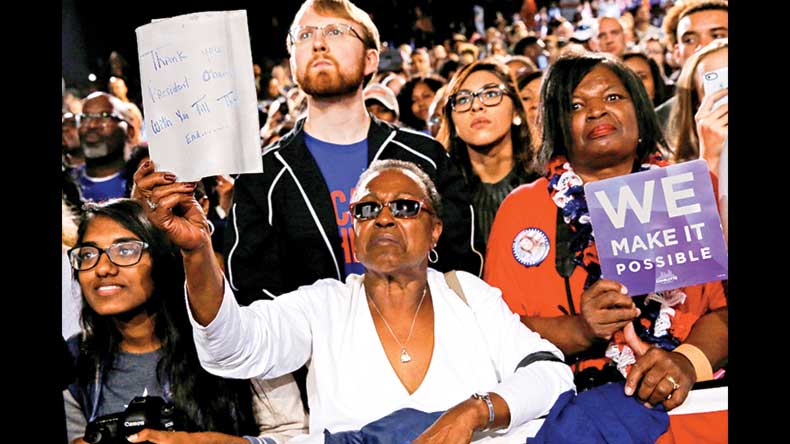London. The men who designed the American system of governance didn’t trust each other. Having just won independence from a monarchy, they put in place a complex, interlinking system of checks and balances to try to ensure that the United States didn’t produce a powerful king of its own.
Over the years, that system has been adjusted and refined, but always with the goal of a separation of powers between the legislature (the Senate and the House of Representatives), the executive (headed by the President), and the courts. The theory is, the legislature makes the laws, the executive carries them out, and the judiciary (in the form of the Federal and Supreme Courts) evaluates them. And they all keep an eye on each other.
Most of the talk around the 8 November election in the United States has been about who will be President. But when American voters step into the voting booth, they will not only be choosing a President, but will also be faced with an entire menu of choices for a whole range of other elected positions.
Given the separation of powers, what the new President can accomplish will greatly depend on who else is elected. President Obama, for example, has had a whole slate of initiatives blocked by a recalcitrant Republican legislature, including his nomination for the vacancy on the Supreme Court. Similarly, the legislature keeps trying to kill the Obamacare, and the President just vetoes their propositions. With a President and legislature from different parties, already slow moving Washington can come to a standstill.
This is one reason why, to understand what is really happening on the 8th, we have to look beyond just the Presidential race. The recent FBI letter saying that it is still investigating the issue of Hillary Clinton’s emails, hasn’t just revived the campaign of Donald Trump, it has also completely changed the math around what had been considered safe Senate and House seats.
Members of the House of Representatives are elected for two-year terms. Senators are elected for six-year terms, with approximately a third of the Senate up for election every two years. So, this year, the entire House is up for grabs, as are 34 seats in the Senate.
Before the FBI letter, it looked possible that both the House and the Senate would go majority Democratic. Now that is not so sure. This is not necessarily because people will switch their vote from Clinton to Trump. It could be that people who might have voted for Clinton are so put off by the allegations that they just don’t go out and vote, hurting the entire Democratic line up. Alternatively, Republicans who don’t like Trump might opt to stay at home, swinging it the other way.
The composition of the Senate is particularly important because the members of the Supreme Court are nominated by the President, but confirmed by the Senate. There are nine members of the Court, appointed for life. The average retirement age is 78. Currently there is one vacancy on the court, caused by the death of Justice Antonin Scalia. Three of the remaining eight Justices are 78 years old, or older. That means it is possible that the next President may appoint four Justices to the nine-person court, affecting the direction of the United States on everything, from campaign financing to abortion to voters’ rights for long after their Presidency ends.
Both parties are using the Supreme Court vacancy to try to motivate their base to vote—saying they don’t just need to win the Presidency, they also need to win the Senate. But there is a widely different approach from each party to the “ground game”. The Democratic Party puts a lot of effort into knocking on doors, driving people to polling stations, and generally making sure that people who are likely to support them are voting. The Republican Party has been particularly weak this cycle, as section of the Party itself seemed to be rejecting Trump. That is slowly turning around, in part because of the FBI letter, but it will take until voting day to see if will make the difference.
As the numbers come in on 8 November, keep an eye on not just on the Presidency but also on the Senate. If one party captures both of those pillars of power (executive and legislature), they may also capture the third (the Supreme Court), giving them the power to reshape America in their image for decades to come.
Cleo Paskal is The Sunday Guardian’s North America Special Correspondent.

